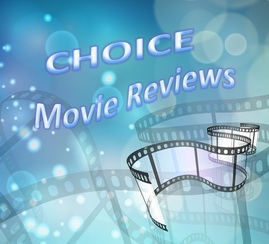
Quality: This score indicates entertainment value.
0 stars is horrible, while 5 stars is spectacular.
Political: This score addresses political messaging.
0 stars is aggressively anti-Conservative, while 5 stars is highly pro-Conservative. 3 stars is apolitical.
Moral/Religious (M/R): This score addresses moral and religious messaging.
0 stars is either intensely immoral or all-out, needless assault on Christianity. 5 stars is either great moral messaging or highly pro-Christian. 3 stars is inoffensive either way.
Quality – 2.5 stars, Political – 0 stars, M/R – 2 stars
All of which is fine if the movie is good—and “Tomorrowland” works well about 80% of the way. There are cool special effects. Touching relationships. Jet packs. But then, once all the kiddies are drawn in, doors close behind them and the sermon heats up to a fever pitch.
Note to Disney: Sermons aren’t fun. They’re boring. And the environmentalist altar call closing this puppy was so intense, I expected Disney employees to hand out robes as we left the theatre.
“Thanks for coming! See you at the coven! Celebrate the Goddess!”
“Ummm…why is Goofy placing Mickey on an altar?”
“Mickey was bad! He invested in oil, using record profits to buy ivory and fur for Minnie! He gave her these things at the shooting range! Bad Mickey, bad! But soon, we shall release Mickey’s negative energy back to the universe, making him whole again!”
“That’s a very large knife. Mickey’s really struggling.”
“Mickey was bad! Make Mickey whole! All hail Gaia!”
“You know, for a High Priest, Donald’s Latin sounds really confusing—”
“Mickey was bad!”
“—though strangely hypnotic.”
“Release Mickey’s energy! Thanks for coming! Place all trash in receptacles as you leave! Bad Mickey, bad!”
As I said, this movie was fine until the end. In brief, Tomorrowland is a futuristic society, held separate from our world by some sort of time-space divergence. People must be invited there, and these recruitments only target those who are brilliant and hopeful—smart dreamers.
The characters, though formulaic, are fairly enjoyable. George Clooney plays Frank Walker, a secluded inventor who experienced Tomorrowland as a youth, but was kicked out. Now he’s grizzled and frustrated, yet longing for hope—a perfect role for Clooney.
Hope comes in the optimistic form of Casey Newton (Britt Robertson), a teenage girl whose extreme intellect and idealism sometimes land her in trouble. Though she’s the central role, Casey is a bland character—just reacting to events around her, offering no compelling interest.
Leading Casey to Frank is Athena (Raffey Cassidy), an android girl who recruits young geniuses for Tomorrowland. Without a doubt, Athena is the most charming character in the movie—and a terrific career-launcher for Cassidy. Expect to see lots of her for years to come. Thanks to Athena, the awkward trio enjoys good chemistry and some witty moments.
Ah, but all is not well in Tomorrowland, as it is run with an iron hand by Governor Nix (a horribly underused Hugh Laurie). Crushing hope with doubt, Nix also operates from a personal agenda—or something. All this is poorly explained, and we never really grasp his motives or goals. What a waste. Nix’s role squanders a fine actor, and we’d hardly know he’s the villain, except androids are killing for him.
Oh well. At the end, we realize the true villain for this Disney film is, well, Disney. No longer content entertaining children, Disney now programs activists. With films like this, you can’t just watch Disney anymore. You must join it. So grab a robe.
Personally, I miss the old Disney. Would it really be so bad to—once again—wish upon a star?
 RSS Feed
RSS Feed